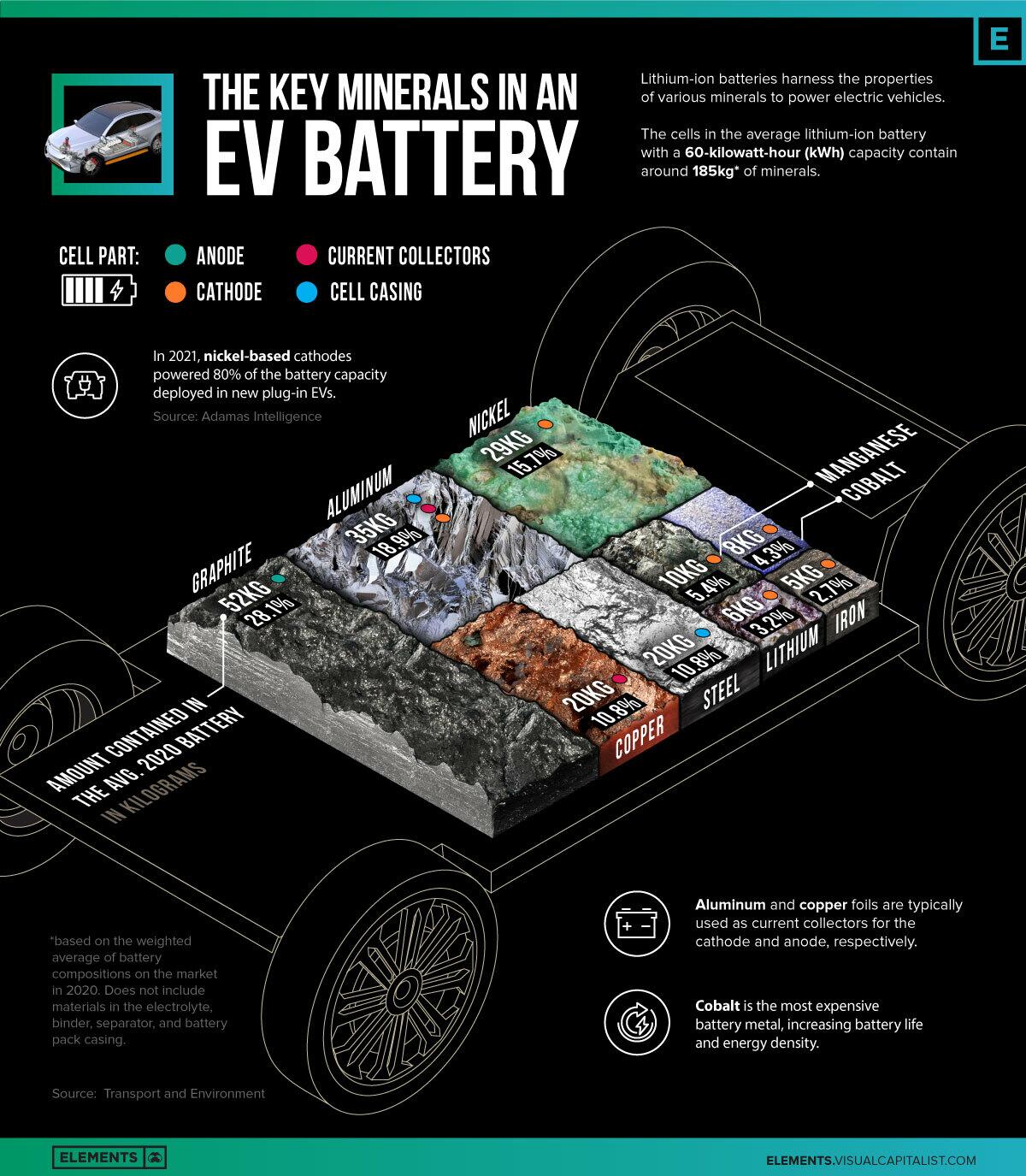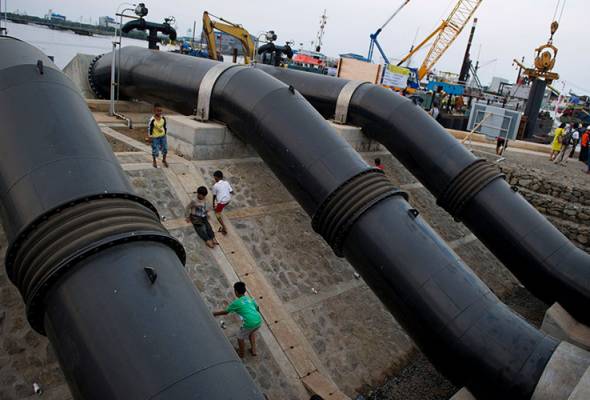Congo's Cobalt Export Ban: Market Awaits Quota Plan

Table of Contents
The Rationale Behind Congo's Cobalt Export Ban
The DRC government's decision to implement Congo's cobalt export ban stems from a multifaceted rationale focused on economic diversification, value addition, and environmental concerns. The country aims to move beyond simply exporting raw materials and capture a greater share of the profits generated along the cobalt value chain.
-
Increased domestic processing: By processing cobalt domestically, the DRC hopes to create thousands of jobs, stimulate economic growth, and develop a more robust and diversified industrial base. This includes investing in refining facilities and promoting downstream industries.
-
Reduced environmental damage: Uncontrolled artisanal mining practices have caused significant environmental damage in the DRC. The ban aims to curb these practices by promoting more regulated and sustainable mining operations, leading to improved environmental protection and responsible sourcing.
-
Securing a larger share of profits: Currently, a significant portion of the profits from cobalt production accrues to foreign companies. The DRC government seeks to increase its revenue through domestic processing and export of refined cobalt products, leading to greater economic benefits for the country.
-
Addressing ethical sourcing concerns: The cobalt mining industry in the DRC has been plagued by concerns regarding human rights abuses and child labor. The government aims to improve ethical sourcing practices through stricter regulations and oversight of mining operations. [Link to relevant news article on ethical sourcing]. [Link to government statement on cobalt mining reforms].
Impact on the Global Cobalt Market
Congo's cobalt export ban and the subsequent quota system will have significant repercussions on the global cobalt market and the wider EV industry.
-
Price volatility and potential price increases: The reduced supply of raw cobalt from the DRC is likely to lead to price volatility and potentially significant price increases. This will impact the cost of manufacturing batteries, ultimately affecting the price of electric vehicles.
-
Increased reliance on other cobalt-producing countries: The ban will force manufacturers to seek alternative cobalt sources, increasing reliance on countries like Australia, Canada, and Zambia. This diversification may create new geopolitical dependencies and supply chain vulnerabilities.
-
Challenges for EV manufacturers meeting production targets: The uncertainty surrounding cobalt supply could severely impact EV manufacturers' ability to meet their production targets, potentially delaying the transition to electric vehicles.
-
Potential for supply chain disruptions and delays: The disruption in the cobalt supply chain caused by the ban could ripple through various industries reliant on cobalt, leading to production delays and shortages of cobalt-containing products.
Major battery manufacturers like LG Chem, CATL, and Panasonic have already expressed concerns about the potential impact of Congo's cobalt export ban on their operations. [Link to news article about manufacturer reactions].
The Anticipated Quota System: Uncertainties and Challenges
While the details of the planned quota system are still emerging, several uncertainties and challenges remain.
-
Allocation criteria for export quotas: The criteria used to allocate export quotas will be crucial. Fair and transparent allocation is essential to avoid favoring particular companies or creating opportunities for corruption.
-
Transparency and fairness of the quota allocation process: A lack of transparency in the allocation process could lead to accusations of favoritism and corruption, undermining the government's efforts to promote responsible mining practices.
-
Potential for corruption and rent-seeking behavior: The quota system presents opportunities for corruption, with potential for bribery and rent-seeking behavior to influence quota allocation.
-
Enforcement mechanisms to prevent illegal cobalt exports: Robust enforcement mechanisms are needed to prevent illegal exports of cobalt, which could undermine the effectiveness of the quota system.
The impact of the quota system on small-scale miners remains a major concern. Many rely on informal mining practices, and the new regulations may disproportionately affect their livelihoods. [Link to report on impact of regulations on small-scale miners].
Alternatives and Mitigation Strategies
Mitigating the negative impacts of Congo's cobalt export ban requires a multi-pronged approach.
-
Diversification of cobalt supply sources: Global efforts to diversify cobalt sourcing away from reliance on the DRC are crucial. This involves investing in exploration and mining activities in other cobalt-producing countries.
-
Investment in cobalt recycling and reuse technologies: Recycling and reuse of cobalt from end-of-life batteries and other products can significantly reduce dependence on primary cobalt mining.
-
Development of alternative battery technologies: Research and development of alternative battery technologies that use less cobalt or no cobalt altogether are essential for long-term sustainability.
-
Stronger international cooperation to promote responsible sourcing of cobalt: International cooperation is needed to ensure responsible sourcing and improve transparency and traceability in the cobalt supply chain.
Conclusion
Congo's cobalt export ban and the upcoming quota system represent a significant turning point for the global cobalt market. While the intention to boost the DRC's economy and promote responsible mining practices is understandable, the uncertainty surrounding the quota plan's implementation poses significant challenges for the global supply chain. The international community must work collaboratively with the DRC to ensure a transparent, equitable, and efficient quota system that minimizes disruptions and promotes sustainable development. Companies relying on Congolese cobalt need to actively monitor developments, diversify their supply sources, and engage in responsible sourcing initiatives to mitigate risks associated with Congo's cobalt export ban. Staying informed about updates on Congo's cobalt export ban and quota plan is crucial for all stakeholders.

Featured Posts
-
 Rising Alcohol Consumption In Women Doctors Sound The Alarm
May 16, 2025
Rising Alcohol Consumption In Women Doctors Sound The Alarm
May 16, 2025 -
 Where To Watch Ottawa Senators Vs Toronto Maple Leafs Game 5 Nhl Playoffs Live
May 16, 2025
Where To Watch Ottawa Senators Vs Toronto Maple Leafs Game 5 Nhl Playoffs Live
May 16, 2025 -
 Jiskefet Ere Zilveren Nipkowschijf 20 Jaar Na Laatste Uitzending
May 16, 2025
Jiskefet Ere Zilveren Nipkowschijf 20 Jaar Na Laatste Uitzending
May 16, 2025 -
 Kerja Sama Pemerintah Dan Swasta Untuk Proyek Tembok Laut Raksasa
May 16, 2025
Kerja Sama Pemerintah Dan Swasta Untuk Proyek Tembok Laut Raksasa
May 16, 2025 -
 Padres Series Win Over Cubs Game Recap And Highlights
May 16, 2025
Padres Series Win Over Cubs Game Recap And Highlights
May 16, 2025
